A while back, I had just finished reading Kate DiCamillo’s “The Tale of Despereaux,” a Newbery Medal winning novel. The award is given “for the most distinguished contribution to American literature for children.” There’s no denying: the book is a great read, full of adventure with a witty narrator and unique characters.
The book is also harrowing. There are scenes of mild violence and verbal and mental child abuse. The book is an overt tale of good versus evil, dark versus light.
As I read, I wondered when it would be appropriate to read a book like this to my older kids, ages five and three. They would love it, I’m sure.
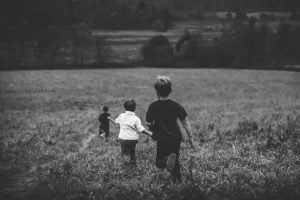 My wife and I struggle with how to present violence, death, evil, and horror into our kids’ lives. For the most part, we avoid it altogether. We don’t allow shows with violence, guns, weapons, or anything remotely scary. Until a week ago, they hadn’t watched a single Disney movie except for Finding Nemo. Last weekend, we finally watched Frozen together. (That whole thing with Hans at the end–does the movie really need that dark twist to bring the sisters together?)
My wife and I struggle with how to present violence, death, evil, and horror into our kids’ lives. For the most part, we avoid it altogether. We don’t allow shows with violence, guns, weapons, or anything remotely scary. Until a week ago, they hadn’t watched a single Disney movie except for Finding Nemo. Last weekend, we finally watched Frozen together. (That whole thing with Hans at the end–does the movie really need that dark twist to bring the sisters together?)I even censor books that use the word “kill” or “die.” I say “hurt” or something else instead.
I am so torn by this, though. On one hand, I want to preserve their innocence as long as I can. On the other hand, what better way to begin to grapple with good and evil than reading a book while sitting wrapped in your parents’ arms?
And then there are the games they play together.
My son builds guns out of his Bristle Blocks, and we make him take them apart. He once told me that he hid some blocks in his room that he made into a “gun.” He must play with it by himself during his afternoon quiet time. (At least he’s still willing to tell me these kinds of things. What will he hide from us years from now?)
They both chase each making shooting or fireball noises, and we usually make them stop. When either one says that they will do something violent to the other, even in pretend, we tell them that we don’t do that, we don’t hurt people, we don’t say those kinds of things.
But I can’t help also thinking that playing the bad guy, pretending to be bad, must be healthy in some way, must be good for development. After all, it’s just pretend. They don’t ever really hurt each other.
I wish I knew how to balance exploration with protection. Our children are kind souls so far, and I want to keep them that way. We’ve also eased up our intensity when it comes to their good-guy-bad-guy make-believe games. My wife and I began to think that our (over?) reactions were making things that much more alluring. I hesitate to say this, but backing off seems to have worked, at least for now.
When I was a kid, we got these laser guns. I remember loving mine for the short time I had it. It was loud, it had flashing lights, it was amazing. But my parents took it away. I remember thinking that was so unfair. I totally get it now. (Yes, mom, you read that right.)
As a teen, I played incredibly violent video games. I still enjoy violent movies (or would if I had time to watch them). I don’t cringe at violence, horror, or good and evil in literature. And I’ve never hurt anyone. I’d imagine I’m one of the least violent people around. All of that darkness hasn’t turned me evil, so why am I worried that it would change our kids?
Sometimes I feel like Holden Caulfield when I think about this stuff. But then I remember that Holden had an idealized view of childhood. He blinded himself to the sometimes temperamental, whiny, profane, and down-right-mean nature of kids. The ambiguity and complexity of it all is tough to deal with.
The world is an unfair, dark, and violent place. There is plenty of good, too, but we don’t see the good as much as the rest. In the end, I think I’m just trying to keep all of that darkness away from my kids as long as I can. I recognize the futility of that fight, but a dad can try, can’t he?


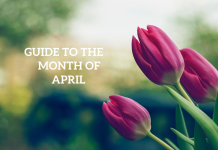



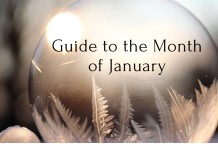


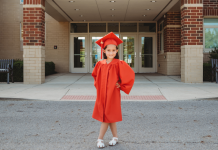

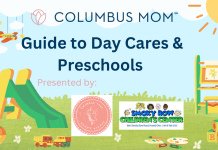
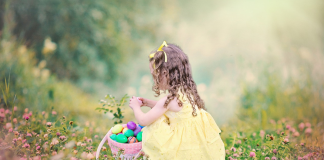




I think that urban and suburban life has removed a lot of these issues from everyday life. I was raised in a rural area. Guns were not taboo, my parents hunted for meat to feed us. We kept animals. Life, death, mercy (euthanasia) and such were a part of my childhood. That is just how life was. It was automatically built into my experience not just some abstract concept. Now living in the suburbs, I struggle with how to introduce these concepts to my own children.
No judgement here, but my feelings and process for my own children (7and almost 6) is to let them see such things in a fantasy setting where they understand that it isn’t real life, then use that as a springboard into a discussion about these topics. I’m sure that the trolls will call me a horrible mother but my kids have seen all the Harry Potter movies, the Lord of the Rings trilogy, every Star Wars and most of the Marvel movies. I also like Scooby doo for teaching them that monsters are not real but bad people are.
My question to you is, if you don’t let your kids know about these things, what happens when they go to school and practice lock down drills? Also how can you keep them safe if you never tell them that there are bad people in the world that do very bad things? How do you coach them on stranger danger, what to do in an active shooter event, a fire, or even a tornado if you don’t explain that the world can be a dangerous place? In the unlikely event that your kids do face any of these situations knowing what to do could save their lives. I feel I would be doing my children a great disservice to not teach them these things. I don’t teach them in a morbid or scary way. We just play the “What would you do if…” game, sometimes in response to something we see or read, sometimes just to help them understand how to react to things.I
As for books, a few books from my childhood that really encompassed these concepts were “Island of the Blue Dolphin” and “Where the Red Fern Grows”. These were read to me at school around 4th grade and are classics. The little house on the prairie series is also a fairly good introduction to hard times, having chores, working together as a family and unfortunate circumstances.
I think my kids are still a bit young for these books (and I can’t read “Where the Red Fern Grows” without ugly crying) but in a couple years we will be reading them.
As I said before this is just my opinion, no judgement on anyone else’s parenting style. To be honest even my husband and I have very different views on guns due to very different upbringings. I believe that kids should be exposed to the world in safe ways early and organically. I don’t think you do them any favors by acting as an umbrella and shielding them from the realities of life.
Comments are closed.